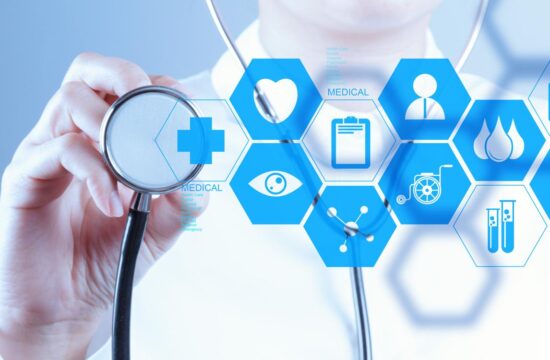Artificial Intelligence In Healthcare: Bringing A Revolution In Medical Diagnosis And Treatment
Artificial Intelligence (AI) is no longer a concept from science fiction movies. It has now firmly entrenched itself in our daily lives, with applications ranging from intelligent personal assistants to virtual home assistants. However, one of the most significant developments has been the use of AI in healthcare. The technology is rapidly becoming the go-to tool for medical professionals, helping them diagnose and treat patients in a faster, more effective and efficient manner.
From determining the effectiveness of treatments to predicting the potential symptoms of a new disease outbreak, AI is bringing a revolution to the healthcare industry. The most significant advantage of AI in healthcare is its ability to analyze vast amounts of data and identify patterns that would be difficult or impossible for humans to detect.
One of the most significant applications of AI in healthcare is medical imaging. Radiology and pathology are two fields where the use of AI is already common. AI-powered imaging systems can quickly and accurately analyze X-rays, CT scans, MRI scans and other types of medical images. Deep learning algorithms are used to identify and highlight abnormalities such as tumors, cysts, and nodules, which can then be analyzed further by medical professionals.
Another field where AI has the potential to revolutionize healthcare is genomics. With genetics data increasing at an unprecedented rate, AI can sift through vast amounts of genetic data and identify specific gene sequences associated with diseases. This can help in the early detection of genetic disorders and the development of personalized treatment plans.
AI is also being used to develop new drugs and therapies. Drug discovery is a time-consuming process that can take years and involves multiple stages. AI-powered drug discovery systems can accelerate the process by analyzing large amounts of data and identifying drug compounds that have a higher chance of success.
AI’s impact on healthcare is also being felt in the development of virtual assistants and chatbots. These chatbots can provide patients with 24/7 access to medical advice and assistance. They can help patients self-diagnose and recommend appropriate treatment options. These systems are easy to use and can help reduce the burden on healthcare systems.
In conclusion, AI is bringing a revolution in healthcare. It is changing the way medical professionals diagnose and treat patients, and it has the potential to develop new drugs and therapies. While there are still concerns about the ethical and privacy implications of AI, there is no doubt that the technology has the potential to transform healthcare and improve patient outcomes. As the technology continues to evolve, we can expect to see more innovative applications of AI in healthcare in the future.











